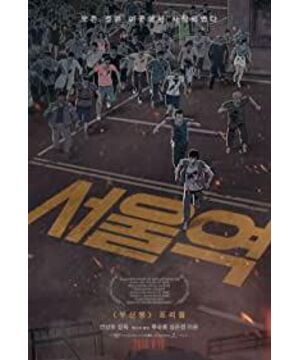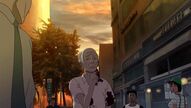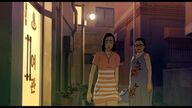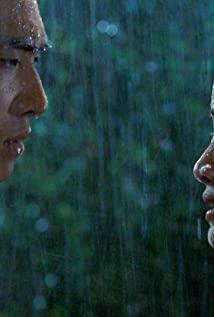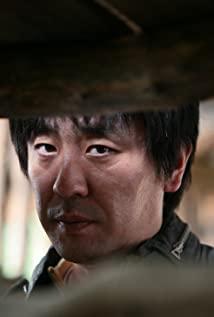"Seoul Station" has improved a lot from Yeon Sangho's previous animation works in terms of production alone, and is much more delicate than "The King of Pigs" and "Spectacular". Yan Shanghao’s animations have always been slow and slow, with a slightly sloppy style, the number of frames that are stuck into PPT, and the writing of Hei Chuxiang on the world... This style is actually not suitable for the disaster of "zombies". The survival theme is reflected in the plot: the characters are always in a daze, talking nonsense, crying, forgetting to close the door forever, and all the characters are not pleasing. The ending finally returns to the black human nature that Yan Shanghao is good at. Unfortunately, the turning point is blunt and the plot is far-fetched. Although the ending is severely broken, there is a clue that runs through the beginning and the end of the film-home. The source of the zombie's disease and the initial outbreak was the stray crowd. The hostess was picked up by her boyfriend when she was wandering on the street. The hostess missed home for the first time after her boyfriend forced her to have a supplementary dating. She cried and cried: "Dad." After learning that her father was looking for herself, the hostess was homesick again when she was walking with the tramp in the subway station. The tramp said: "I I want to go home too, but I don't have a home." The two sat on the railroad tracks and cried. The drunk homeless man said: "I built 80% of the houses in Seoul."-But none of them belonged to him. The uncle in red cried when intercepted by the army: "I have dedicated my life to the country, and the country cannot abandon me." The tramp smiled: "I have played for this country my whole life, but you can see where I am now. There is no us here at all." "Home" not only refers to "family residence", but also a metaphor for "family" and "country", a place for shelter. The hostess's journey to escape from the zombies is also a journey to find a home. But the hostess risked her life to walk all the way, but in the end she didn't find her "home", only the model house of the construction company's community. There are many spacious and gorgeous model rooms in the company, but the hostess chose the smallest and simplest room, and sleeps in the model room with only a few tables, cabinets and a bed, because it fits her imagination of "home" best: not enough Perfect but safe. This is also the reason why the heroine forgave her boyfriend: no matter how bad her boyfriend is, he never abandons her and is part of the heroine's "home". So when the uncle killed the heroine boyfriend and told her that she had been abandoned by her father, the heroine's dream of "going home" was completely shattered. The heroine who had been on top of the halo, this time received the lunch very quickly. The model house is a "fake home", but even a "fake home" is expensive, just like a price tag placed on the sample furniture. When the uncle lifted the knife and shuttled back and forth in the model house to find the hostess, he kept feeling: "It's great, this house is so big. When will I be able to live in this way? Your house. "In the end, he finally became a zombie and "lived" with the hostess and entered the model room. The tramp cried before he died and said, "If I had a place to go in the first place, I won't end up like this now. "But where is the home?" At the end of "The King of Pigs", Zhong Shuo cried to his girlfriend on the other end of the phone: "I'm very scared. "My girlfriend asked: "What's the matter?" where are you? "Zhong Shuo was stunned suddenly: "...in the world. "Yes, if there is no place for you in the world, where can you escape? It's like a fable: these homeless and forced proletarians will eventually turn into zombies and bite the world.
View more about Seoul Station reviews


